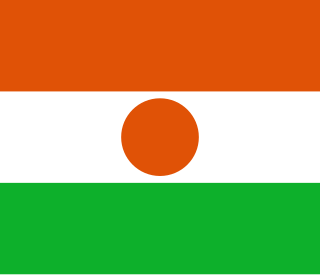This article does not cite any sources .(December 2009) (Learn how and when to remove this template message) |
The Committee on Education, Culture, Tourism and Human Resources is one of the ten permanent committees of the Pan-African Parliament. It deals with issues relating to education, cultural issues, tourism and human resources.

The Pan-African Parliament (PAP), also known as the African Parliament, is the legislative body of the African Union and held its inaugural session in March 2004. The PAP exercises oversight, and has advisory and consultative powers, lasting for the first five years. Initially the seat of the Pan-African Parliament was in Addis Ababa, Ethiopia but it was later moved to Midrand, South Africa.
Functions of the committee:
- Consider strategies and programmes for the improvement of the lives of African peoples.
- Consider issues relating to regional and international cooperation in strategic planning and implementation of social development and health policies and programs.
Chairperson of the Committee is Hon William F. Shija from (Tanzania).

Tanzania, officially the United Republic of Tanzania, is a country in eastern Africa within the African Great Lakes region. It borders Uganda to the north; Kenya to the northeast; Comoro Islands at the Indian Ocean to the east; Mozambique and Malawi to the south; Zambia to the southwest; and Rwanda, Burundi, and the Democratic Republic of the Congo to the west. Mount Kilimanjaro, Africa's highest mountain, is in north-eastern Tanzania.
Deputy Chairperson of the Committee is the Hon Maidagi Allambeye from (Niger).

Niger or the Niger, officially the Republic of the Niger, is a landlocked country in West Africa named after the Niger River. Niger is bordered by Libya to the northeast, Chad to the east, Nigeria to the south, Benin to the southwest, Burkina Faso and Mali to the west, and Algeria to the northwest. Niger covers a land area of almost 1,270,000 km2 (490,000 sq mi), making it the largest country in West Africa. Over 80% of its land area lies in the Sahara Desert. The country's predominantly Islamic population of about 21 million live mostly in clusters in the far south and west of the country. The capital city is Niamey, located in Niger's southwest corner.
Rapporteur of the Committee is the Hon Draoui Mohamed (Algeria).
Draoui Mohamed sits on the Committee on Education, Culture, Tourism and Human Resources a permanent committee of the Pan-African Parliament, while also sitting on the Pan-African Parliament representing Algeria beginning in 2004.

Algeria, officially the People's Democratic Republic of Algeria, is a country in the Maghreb region of North Africa. The capital and most populous city is Algiers, located in the far north of the country on the Mediterranean coast. With an area of 2,381,741 square kilometres (919,595 sq mi), Algeria is the tenth-largest country in the world, and the largest in Africa. Algeria is bordered to the northeast by Tunisia, to the east by Libya, to the west by Morocco, to the southwest by the Western Saharan territory, Mauritania, and Mali, to the southeast by Niger, and to the north by the Mediterranean Sea. The country is a semi-presidential republic consisting of 48 provinces and 1,541 communes (counties). It has the highest human development index of all non-island African countries.



